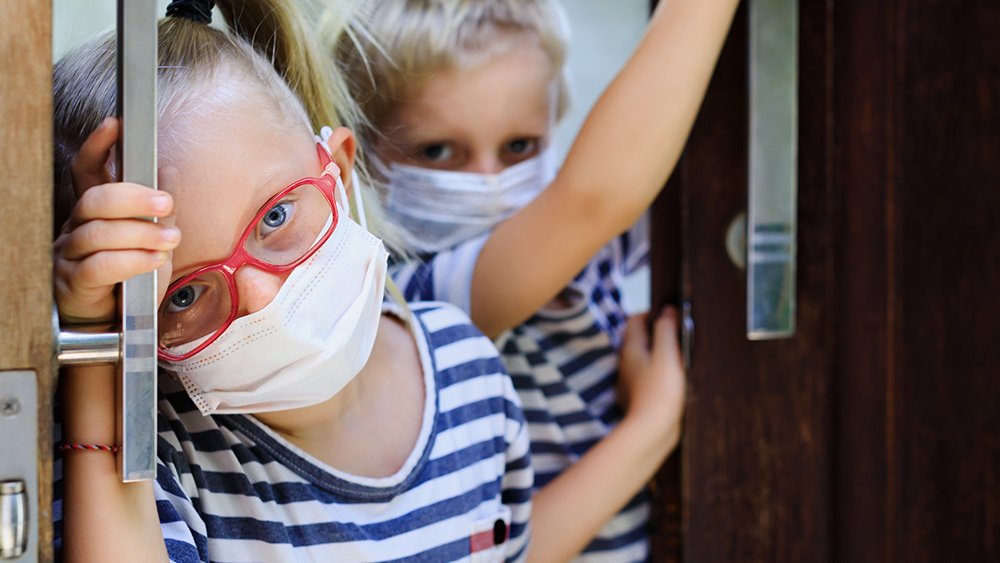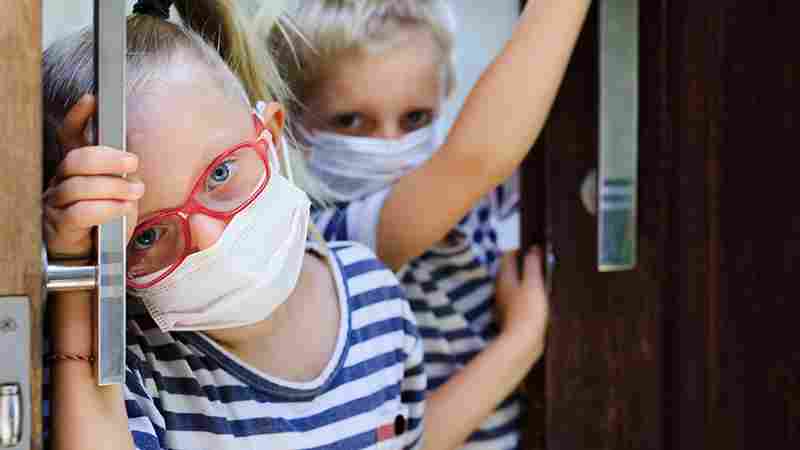
- 2020-12-13
- 0.0 Reitingas
- 925 Peržiūrų
- Aptarti
How COVID-19 affects children is a topic that’s getting traction, especially with recent studies saying that the disease is less severe in children than in adults. So far, health experts have observed that fewer children contract the virus. Hospitalization rates in children are also lower than those in adults.
In a new study, Petra Zimmermann and Nigel Curtis of the University of Fribourg in Switzerland and the University of Melbourne in Australia, respectively, have identified several key factors that could be driving these COVID-19 trends in children.
These factors include higher vitamin D levels, a stronger innate immune response, stronger blood vessels and frequent exposure to other pathogens, among others.
The full findings of the review appeared online in the Archives of Disease in Childhood.
Several factors protect children
Experts are still in the dark as to why children appear to have a lower risk of contracting the coronavirus and developing severe symptoms. Some experts suggest that severe COVID-19 infections in adults are influenced by risk factors that increase with age.
Meanwhile, others are inclined to believe that children have unique physiological characteristics that protect them from developing severe or life-threatening infections.
In their review, Zimmermann and Curtis studied these characteristics, which include undamaged cells along blood vessels, a strong immune system and higher levels of vitamin D, which plays a key role in immunity.
They also found that children generally have fewer angiotensin-converting enzyme 2 (ACE2) receptors. This receptor allows SARS-CoV-2 to infect cells.
These factors all work to influence disease outcome once COVID-19 enters the picture. For instance, healthy endothelial cells that line the heart and blood vessels are crucial for blood flow and clotting.
However, in adults with severe COVID-19 infections, endothelial cells tend to be damaged. When these cells are compromised, an individual would face an increased risk of stroke and heart attack. SARS-CoV-2 infects endothelial cells as well, causing inflammation.
Children tend to have healthy, undamaged endothelial cells. For one, children are less exposed to pollutants that can damage endothelial cells, trigger inflammation and impair blood circulation.
Furthermore, children are less prone to abnormal blood clotting, which can occur when endothelial cells are damaged, said Curtis.
Children also have fewer ACE2 receptors, which the SARS-CoV-2 virus hijacks and uses to infect cells. ACE2 receptors also increase with age. This explains their prevalence in adults and offers insight into why toddlers are less likely to develop symptoms than older children when infected with the coronavirus.
Children also have a stronger innate immune response, which can be explained by two things, the first being that children are more likely to be infected with various pathogens. Children pick up germs all the time from playing in the dirt or in the playground, where surfaces are hardly clean.
Several studies suggest that exposure to germs in childhood can boost children’s innate immune response to infections. This may help them build resistance to pathogens as they get older.
Zimmerman also noted that children with COVID-19 tend to have “co-infections” with other viruses. Having recurrent viral infections could lead to improved trained immunity in children, she added.
Children’s gut microbiota also differs in composition from that of adults. The gut microbiota can affect one’s immune response to infections. While it’s unclear how exactly the gut microbiota can affect the outcome of a COVID-19 infection in either children or adults, it cannot be dismissed entirely.
In addition, children have higher levels of vitamin D and melatonin than adults. Humans produce vitamin D when sunlight strikes the skin. In the body, vitamin D plays a crucial role in strengthening immunity. In fact, vitamin D has been extensively studied for its potential to significantly reduce COVID-19 risk, particularly in older adults. (Related: New research says vitamin D may reduce the severity of COVID-19.)
One study by Belgian researchers found that nearly 75 percent of severely ill COVID-19 patients they studied were vitamin D deficient upon admission to a hospital. The deficiency was also more pronounced in patients that had severe pneumonia.
On the other hand, melatonin, a hormone that regulates the body’s natural sleep-wake cycle, has been shown to also regulate the activation of the immune system. Melatonin can help reduce inflammation as well.
Overall, these factors seem to agree with prevailing observations that COVID-19 leads to less severe illness in children than in adults. Further studies are needed to confirm how these factors influence disease outcome.
Read the latest updates on the coronavirus pandemic at Pandemic.news.
Sources include:
by: Divina Ramirez
Pasaulio naujienas kitaip... skaitykite Paranormal Telegram, FB ir X(twitter) kanale...kadangi jau perskaitėte šį straipsnį iki pabaigos, prašome Jus prisidėti prie šio darbo. Skaitykite „Paranormal.lt“ ir toliau, skirdami kad ir nedidelę paramos sumą. Paremti galite Paypal arba SMS. Kaip tai padaryti? Iš anksto dėkojame už paramą! Nepamirškite pasidalinti patikusiais tekstais su savo draugais ir pažįstamais.
Turite savo nuomone, tapk autoriumi, prisijunk ir rašykite bloge. Dalinkitės receptais, sveikatos patarimais, nutikimais, susidūrėte su nekasdieniškais reiškiniais. Galite išversti iš užsienio kalbos, talpinkite su nuoroda. Laukiame Jūsų straipsnių, naujienų, apžvalgų ar istorijų!
Susijusios naujienos
Būkite pirmi, kurie pasidalins savo nuomonėmis su kitais.
Skaityti daugiau
Skaityti daugiau
Skaityti daugiau
Skaityti daugiau
Skaityti daugiau

